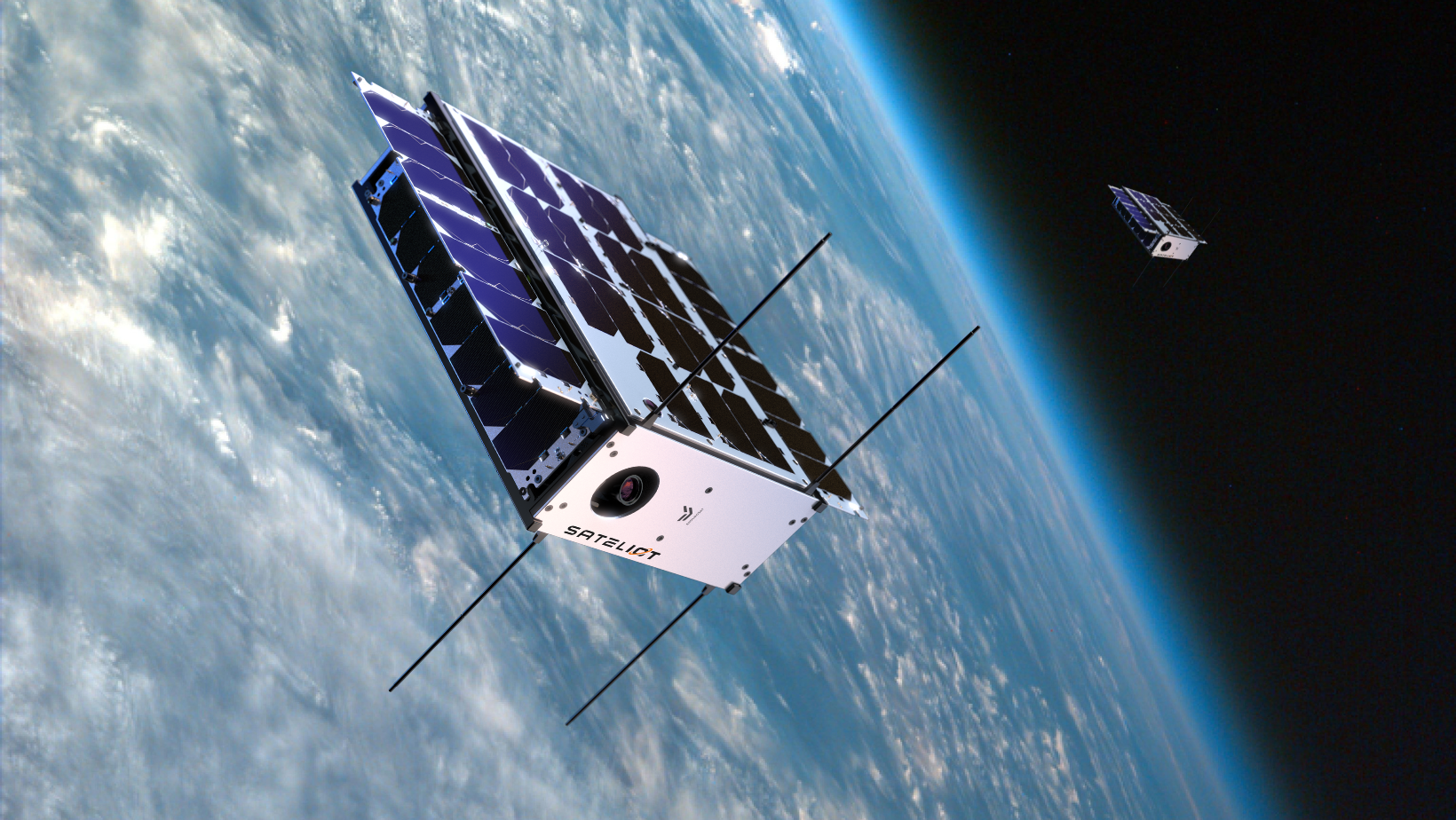
TAMPA, Fla. — Sateliot is seeking 30 million euros ($33 million) from investors to add 64 nanosatellites to a constellation for connecting devices outside of terrestrial networks, the Spanish startup’s founder said as SpaceX prepares to launch its first four commercial satellites this year.
The constellation would be compatible with updated 5G networking protocols used by terrestrial telcos, meaning customers could connect to the satellites with mass market devices without needing specialized, proprietary hardware.
Jaume Sanpera, founder and CEO of Sateliot, said the venture has so far raised 28 million euros since it was founded in 2018 to provide space-based connectivity to monitoring, tracking, and other Internet of Things devices.
Sanpera said the company has raised 11 million euros in debt in total, along with 17 million euros in equity from companies including Spanish wireless telecommunications infrastructure provider Cellnex and Indra, one of Spain’s largest defense contractors. Sateliot announced its latest financing agreement Jan. 10 with a 6 six million euro loan from Spanish financial services giant Banco Santander.
The operator has two prototypes in low Earth orbit. Although Sanpera said Sateliot has booked a launch with SpaceX to deploy its first four commercial satellites in 2024, a more precise date for the mission has not been confirmed.
British small satellite specialist Open Cosmos provided Sateliot’s initial test satellites, but a manufacturer for the rest of the constellation has not been disclosed.
Sateliot satellites are designed to pick up and store small amounts of data from a device and then relay it back into terrestrial networks once a ground station is in range.
According to Sanpera, just four satellites would enable early services for delay-tolerant connection needs, such as monitoring applications in the agriculture and mining industries.
The 30 million euros Sateliot is looking to raise through a Series B funding round would be used to expand the fleet to 68 satellites over the next 18 months.
More satellites would reduce latency, and Sateliot ultimately plans to deploy 250 nanosatellites in three years for a global, constellation providing near-real-time service.
Sateliot has already secured more than 150 million euros in binding orders from telcos looking to use the satellites to extend their ground-based networks, the startup announced Jan. 10.
Eventually, the venture plans to provide messaging services from space directly to smartphones using cellular networking protocols.
Iridium Communications, an established provider of mobile connectivity services to specialized devices, announced plans Jan. 10 to also provide messaging services directly to standard smartphones using standardized network protocols in the coming years, following similar moves elsewhere in the space industry.
- SEO Powered Content & PR Distribution. Get Amplified Today.
- PlatoData.Network Vertical Generative Ai. Empower Yourself. Access Here.
- PlatoAiStream. Web3 Intelligence. Knowledge Amplified. Access Here.
- PlatoESG. Carbon, CleanTech, Energy, Environment, Solar, Waste Management. Access Here.
- PlatoHealth. Biotech and Clinical Trials Intelligence. Access Here.
- Source: https://spacenews.com/spanish-startup-sateliot-seeks-funds-for-64-more-connectivity-satellites/
- :has
- :is
- :not
- $UP
- 10
- 11
- 150
- 17
- 17 million
- 2018
- 2024
- 250
- 28
- 30
- 5G
- a
- add
- Agreement
- agriculture
- along
- already
- also
- Although
- amounts
- an
- and
- announced
- applications
- ARE
- AS
- b
- back
- banco
- Banco Santander
- BE
- been
- binding
- but
- by
- cellular
- ceo
- coming
- commercial
- Communications
- Companies
- company
- compatible
- CONFIRMED
- Connect
- Connecting
- connection
- Connectivity
- contractors
- Cosmos
- could
- Customers
- data
- Date
- Debt
- Defense
- deploy
- designed
- device
- Devices
- directly
- Early
- earth
- elsewhere
- enable
- equity
- established
- Euro
- Euros
- Expand
- extend
- far
- financial
- financial services
- financing
- First
- fla
- FLEET
- following
- For
- Founded
- founder
- Founder and CEO
- four
- from
- funding
- Funding Round
- funds
- giant
- Global
- Ground
- Hardware
- HTTPS
- in
- Including
- industries
- industry
- Infrastructure
- initial
- Internet
- internet of things
- into
- Investors
- IT
- ITS
- Jan
- just
- largest
- Latency
- latest
- launch
- loan
- looking
- Low
- Manufacturer
- Market
- Mass
- meaning
- messaging
- million
- Mining
- Mission
- Mobile
- monitoring
- months
- more
- moves
- needing
- needs
- network
- networking
- networks
- next
- of
- once
- ONE
- open
- operator
- Orbit
- orders
- Other
- outside
- over
- pick
- plans
- plato
- Plato Data Intelligence
- PlatoData
- precise
- Prepares
- proprietary
- protocols
- prototypes
- provide
- provided
- provider
- providing
- raise
- raised
- range
- reduce
- Relay
- REST
- round
- Said
- Santander
- satellite
- satellites
- Secured
- seeking
- Seeks
- Series
- Series B
- service
- Services
- similar
- since
- SIX
- small
- smartphones
- So
- so Far
- Space
- space industry
- space-based
- SpaceX
- Spanish
- specialist
- specialized
- standard
- standardized
- startup
- station
- store
- such
- telecommunications
- terrestrial
- test
- than
- The
- their
- then
- things
- this
- this year
- three
- Through
- to
- Total
- Tracking
- two
- Ultimately
- updated
- use
- used
- using
- venture
- was
- wireless
- with
- without
- would
- year
- years
- zephyrnet











